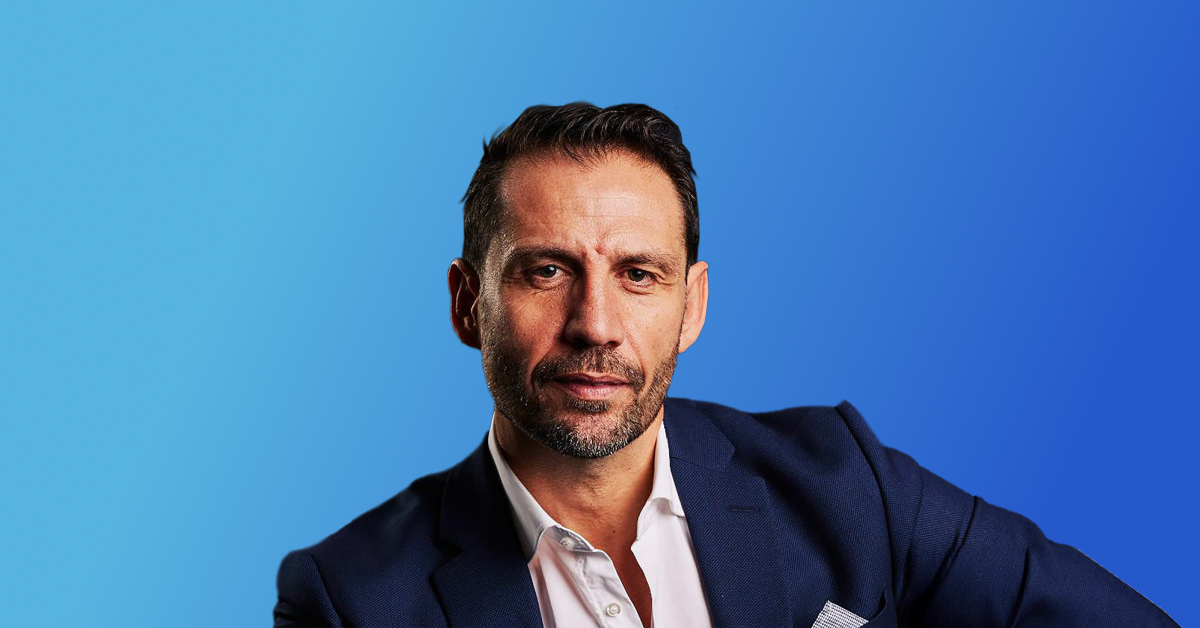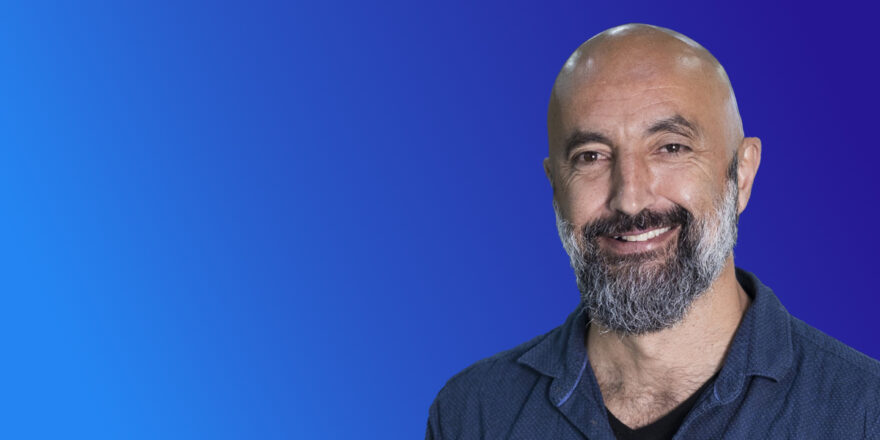Who is Jonathan Shaw in 3 words?
Passionate, easygoing and flexible.
How did it all ignite?
I wanted to be a pilot when I was young. Then something happened. I had to change plans. My teenage dream was shattered. And then I got a job in a production company and it gave me the opportunity to understand people/ That was an amazing lesson. When I started working in managerial positions, I decided to pursue my studies at university. I organised and set up an events company.
This was many years ago. It was good fun. But I had to actually sit down with club owners, sponsors, negotiate plans and that was amazing. You learn at university, you learn from textbooks, but you learn a lot by getting your hands dirty.
It’s good to study. It’s good to do amazing degrees and courses and diplomas. But you also need to get out there in the field. And even if it’s just a part time job in a coffee shop. It helps you build confidence.
You meet new people and learn how to interact. You learn how to read clients. You know how to address certain last minute crisis. Everything is a learning opportunity. And I think that for me was critical too, to help me develop a certain mindset at work and build confidence. And obviously then things happen and I set up my own companies in different sectors. Some worked, some didn’t. I worked in new York, I worked in Sydney. I look back, I’m 50 now, so that’s 30 years of work.
The whole thing, one chapter after the other and I moved on. Most of the time I had my own companies, and it’s great ot have your own company, but then you have different pressures. The way we manage our thinking is critical. And I wish I learnt this many years ago, so the cognitive behaviour aspect of things is critical and this is what makes, I think, my role today suitable for me because it’s a big group but it’s not healthy to stress. So you need to be in control of things.
What was your greatest achievemnet?
I think if I had to reflect on the past years it is being able to move forward. Some things don’t work, others do, but I think I always managed to reinvent myself and move on. Any failure, any issue, any mistake is an opportunity to grow. Yes, you do feel you get those moments and weeks, maybe months, of feeling lost in a way. But then in hindsight, that was an opportunity to venture forward and move into new grounds.
How do you keep competitive?
Primarily, I think you have to respect your competitors. You can’t see your competitors purely as competitors, you need to consider your competitors as a tool that will help you keep yourself on edge.
Competition is healthy. I believe even in a saturated market like ours, there’s a lot of everything. But as long as you keep on delivering and adding value, giving something different to your clients, then there’s a market for everyone.
Are customers always right?
No, but you have to make them feel right. First and foremost, listening and show him you understand or show how you understand the situation.
Rather than go on the defensive, one has to firstly understand, put yourself in their shoes, and make them feel that you’re genuinely trying to understand. If you do that, automatically the client calms down. Whatever the issue, be it small issue, be it large. The client is always a client. So I think having the empathy to understand, and you’re ensuring that the client genuinely feels that you there to help them, then you move on to stage two, explaining your side of the situation and stage three how you can mitigate and help them. But you have to start initially by understanding a lot of people.
Do not make the mistake of trying to go on the defensive straight away as that triggers a lot of other things which are then beyond repair.
What are the perils of re-branding?
Re-branding as much as it is something that could be fun, exciting, sexy in a way, something new, it also has a lot of pitfalls because when you spend years brainstorming to the customer and clients that you are the best, and building a brand equity, building brand name then suddenly you change it. So you can’t just throw you past and what you invested a lot in, down the drain overnight. There’s the psychological effect of rebranding, not only with clients, but also internally, and you need to prepare the way forward. Obviously, we need to see rebranding in different business scenarios. If it’s an acquisition, it’s a different approach because one acquires a company and moves on and rebrands. If it’s a merger, like the one we went through with the current shareholder, and the new kind of setup, then one has to approach it differently. In our case, we were very sensitive to the brand loyal of the brand name, both internally as employees from employees and also client. And we actually did the opposite of what our brand usually does.
We actually toned it down and said that everything is staying the same. We’re just changing the name, what’s in a name? So we actually did the reverse, and we saw that in a ways, people saw us as being more true, more genuine, more honest, because we always push the old brand names forward, nothing changes, the same people and the same values remain.
How do you manage change in a business?
The group has a component of about 600 people in total with direct majorities, direct and indirect, and the direct employees are also made up from about 36 different nationalities, which is quite, quite amazing.
Change is crucial in any business, in any sectors, even in a small family unit. You address change by actually addressing the elephant in the room because sometimes we ahve change and things ar enot always smooth. Things are not always the right change. It’s like, it’s work/ So you need to address it. Get champions within the organisation that can help you contain and manage this change weel. it’s not just the CEO or the owner. You need a lot of soldiers on the ground who actually have leverage on people to explain. But you need to be honest because if your’re not hones then it will come to bite you in the future. We did it by dividing employees into groups and had sessions with them explaining the changes. I myself went with the head of human resources to meet the employees. It was as an opportunity to meet face to face, explain, answer questions, and try and reassure teh employees that the things which we are promising will be delivered.
Change is also an opportunity to grow.
Define leadership
There isn’t a right leader. There is the right leader, at the right time, for the right team. So maybe I could be the right leader for this company at this time, and maybe I’m not the right leader for this company in the future. You need to match the right leader, the time and the team. For me, leadership is having the capacity, the emotion and the intelligence. Sometimes you don’t even need a lot of technical knowledge, but emotional intelligence to understand, connect, communicate, motivate, inspire people – because leadership is doing things, getting other to help you to achieve things, especially in the case of companies of a certain size.
How do you manage conflict?
Luckily, we don’t have a lot of conflict, but sometimes it happens. I don’t micromanage. When there is conflict, the first thing I would do is to listen, understand the nature of the conflict, the issues of the conflict, put things in perspective, and then maybe I would give them advice that ideally they sit down and thrash things out between them, discuss, communicate and if not, make it clear that I will be there to support if they need my support. If they don’t then I’ll have to step in and take the decisions that I think are necessary to take.
What do you look for when you employ someone?
Depends on the role. If it’s a role that needs a certain technical level of expertise, then you need to see that that person can do the job. But probably it is the attitude, the approach, the way they communicate, the way they listen, the questions they ask and the experience are important. But i believe that the hunger that one has to deliver is critical because then you can achieve results, but you need to have the right approach and the curiosity on how to do things better. and this is something that I think one learns outside of university or courses or training, because one has to push himself to get outside of their comfort zone to explore, to do things which challenge you. Adversity, struggle, we need struggle for growth and sometimes it is not easy, but if you want to grow your muscles, you go to the gym. If you want to improve your mindset, you need to be stronger.
And I see it in candidates – sometimes people who had it easy, or expect everything on the plate, and other who need to work hard and achieve, and they show you they want it. In interviews I go head on, and ask candidates to give me three reasons why they should be employed.
What motivates you?
Making things happen. It’s what drives me, and what drives me motivates me. I like connecting people. I like getting results. i like exploring new ventures. New things make things happen. But sometimes what motivates us can also set us back because it distracts us.
What is your advice for someone starting their business?
If you have an idea, pursue it. Go for it. Better that you try it rather than regret that you didn’t do it. It’s good to have a plan, but it is also good to have an exit plan. Sometimes we invest a lot of time in doing the plan and everything, but we don’t have a plan B and a plan C should things not work out as they should. A lot of people have an idea. They want to set up a company, a business, and they set that up with friends or family and that’s tricky. So it’s good to share and have people around you. But be careful. Identify the right people and assign them where you need them, where they can add value and then enjoy it, enjoy the experience and enjoy the adventure.
Thing might work, things might not, but then go for it.
Where do you see yourself in the next 10 years?
The group has been through a lot in 2021. I think that the next stage is growth, further growth. But growth not only in stores but also growth as a company in the brand equity and in the way we engage with our clients in data and technology, in their product offering and in a lot of things. That’s the plan.
How do you run a family business?
I think one important factor is succession planning.
The older generation need to let go, they need to trust the younger generation, to give them roels. Yes. It’s different, different approach, different ideas. But unless they start letting go, then when it comes to the real time where they need to take over, they’re not prepared. So that’s definitely one idea. Secondly, form an informal board of directors and get extensions to sit on the board, mix it up.
Even I as CEO, I want the team to work better without me. If everyone, if the company, to survive, has to work because I’m here, then I’m creating a bottleneck. And that’s in a way, I think, insecurity of a lot of leaders. Make yourself redundant. It doesn’t mean you fire yourself, but I want to focus on other things. So eventually, maybe there’s someone better suited than me to run the operation and I can add value in other areas which the company needs. And the same for family owned companies. Make yourself redundant, have a plan, communicate it. Say yes, I’d like to let go of certain things. It’s a transition, and it’s a process, and plan for it and have milestones.
Get outside help, discuss and enjoy the transition of seeing your offspring, and your families, take over. Because in the long run, what’s worse is seeing what you built collapse, not because the young generation is not capable, but because it was your mistake by not giving them the opportunity.





